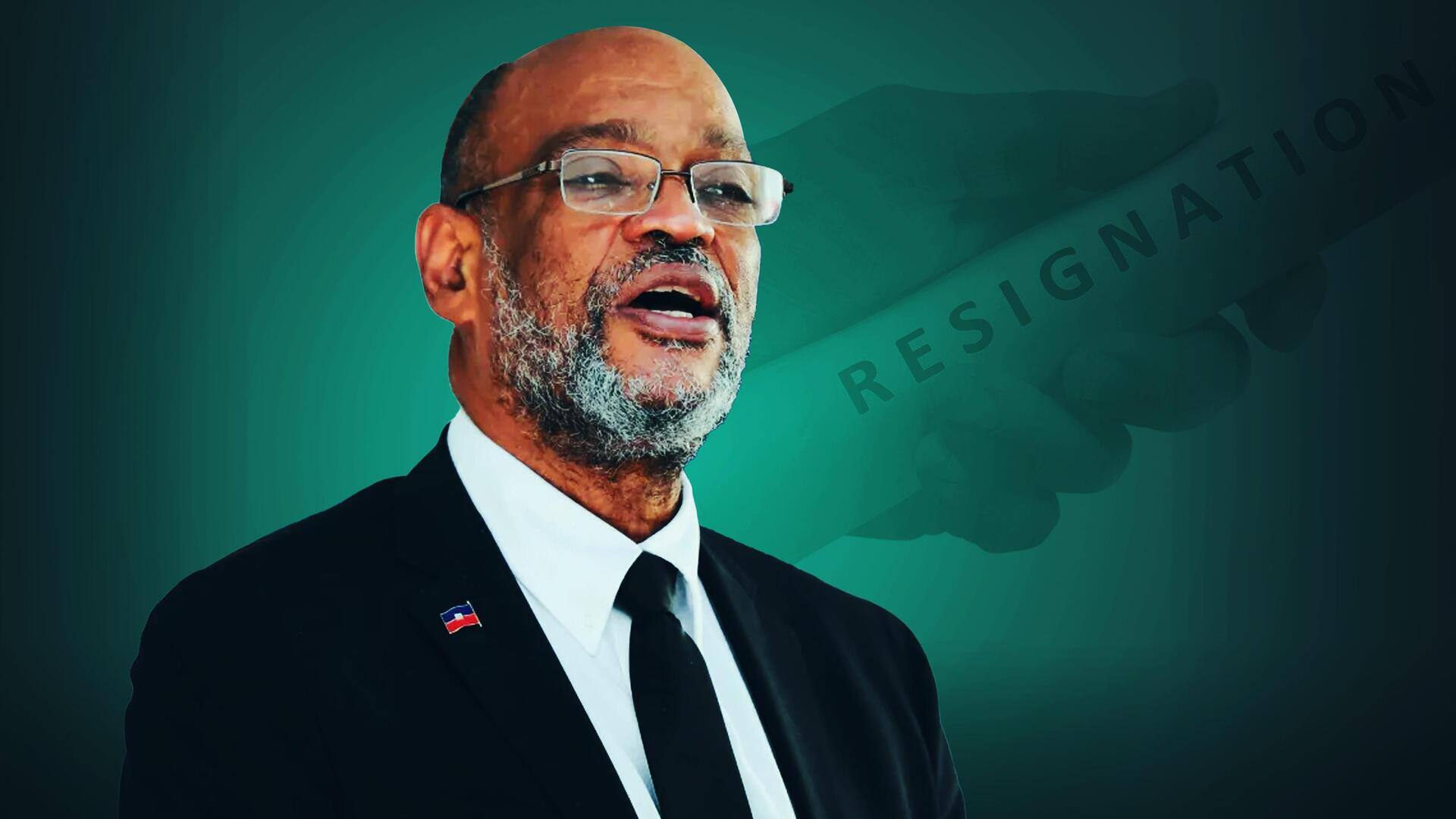
Haiti's 'unelected' PM Ariel Henry resigns amid gang violence
What's the story
Haiti's Prime Minister Ariel Henry, on Tuesday, stepped down from his position amid violence and pressure from regional leaders. In a video message, he encouraged Haitians to stay calm and work toward peace and stability. "The government that I am leading will resign immediately after installation of a transition council," he said from Puerto Rico, where he is currently stranded. Henry has led Haiti—supposedly on an interim basis—since July 2021 after gang members assassinated President Jovenel Moïse.
Context
Why does this story matter?
Located in the Caribbean, Haiti has been wrecked with gang violence and unrest. In recent days, many gang members have taken to the streets in the Haitian capital Port-au-Prince, demanding the resignation of the unelected leader. Calls for fresh elections were also echoed by dozens of civilians, but, Henry said that he wanted to restore security in the country first. He has also been under pressure from other Caribbean leaders who've labeled him as a hindrance in Haiti's political transition.
Standed in Puerto Rico
Henry stranded in Puerto Rico after plane denied landing
Since late February, Henry had been in Kenya to ink a United Nations (UN) deal that would bring 1,000 Kenyan police officers to Haiti to help restore security. In his absence, a coalition of gangs attacked police stations and stormed two of Haiti's largest prisons. The Haitian PM arrived in Puerto Rico a week ago, after gangs captured all international airports in the country and denied his plane to land. Port-au-Prince and the surrounding region are currently under emergency rules.
International response
CARICOM group and US support for Transitional Council
CARICOM nations, who held a meeting in Jamaica, made it clear that Henry was seen as an impediment to Haiti's stability and needed to step down for the transitional council to begin. Initially, the United States (US)—which has pledged a total of $300 for UN-backed security forces in Haiti—wanted Henry to return back to oversee the transition, but the intense fighting changed their stance. Lacking support from both America and neighboring countries, Henry stepped down from his position.
Transitional council
Transitional council tasked with appointing Haiti's next leader
The proposed transitional presidential council will consist of two observers and seven voting members, including representatives from various coalitions, the private sector, civil society, and one religious leader. The council's mandate is to "swiftly" appoint an interim prime minister and set the stage for Haiti's first elections since 2016. Hundreds of people have been killed in the violence while more than 4,000 people have been rendered homeless in Haiti.